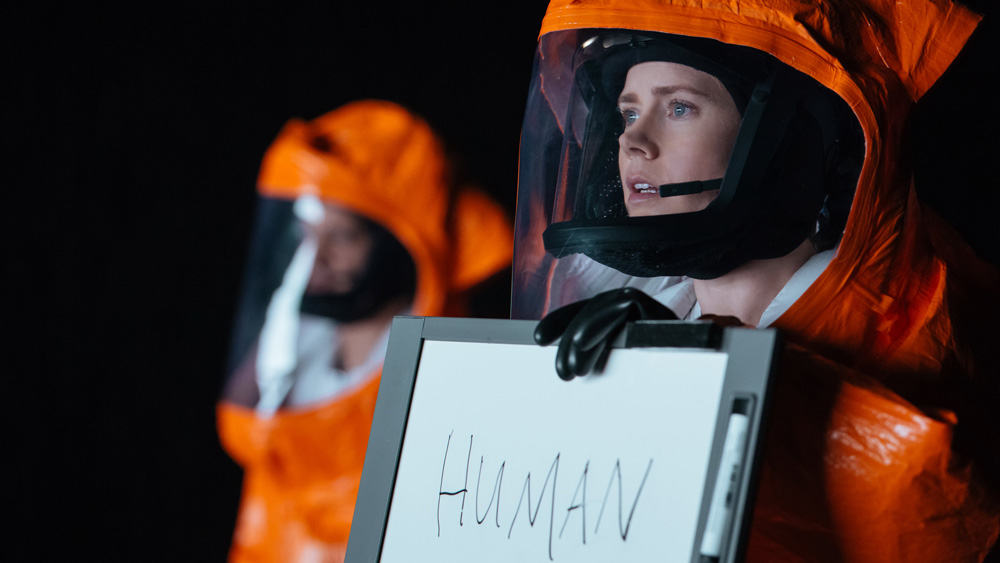Arrival is a science-fiction film that will have you guessing from start-to-finish, while keeping you immersed in its complex storyline.
When aliens land on various locations around the world, Dr. Louise Banks (Amy Adams), an expert linguist is called in to decipher their alien language and figure out the reason for their arrival. Along with scientist Ian Donnelly (Jeremy Renner) and the aid of the American military, she’ll need to uncover the mystery behind the alien landing as tensions rise across the globe.
Arrival is one of those films that you need to see for yourself before learning too much about its plot, as giving away too much detail beforehand will limit the experience of the viewing, as it’s a multi-layered film where you’re best knowing as little as possible going in. With that in mind, what can be said about the story is that it’s rather unique, even though it does borrow elements from past sci-fi films – but which modern sci-fi film doesn’t? In an age of cinema where it’s extremely difficult to come up with an original concept, Arrival gets pretty close.
Science-fiction elements aside, Arrival has a large human-element at its core. One of the main themes in the film is unity. Unity amongst people, but also nations. An alien landing like the one depicted in the film forces world leaders to work together in deciding whether or not the aliens have arrived in peace, or for more sinister purposes. It’s a good commentary on the state of world affairs, where most of the world’s powerful countries may appear as friendly with one another on the surface, but behind the scenes there may be a different story altogether. The film asks the question as to what would happen if all these superpowers had to set aside any differences they have, and join forces to tackle a potential global threat.

On the smaller-scale end of things, the film follows the journey of Adams’ character as she comes to grips with the events of her personal life, while being put in a position of such immense responsibility. Director Denis Villeneuve does this in a sporadic way, revealing key bits of information at certain points of the film, keeping any ambiguous elements in the film flowing – of which there are many. He’s mastered this type of storytelling, as can also be seen in his film Enemy (2013). However where Enemy is all about the viewer’s interpretation of events, Arrival, while not too dissimilar, wraps up a bit better in its conclusion, leaving audiences satisfied while still having plenty to discuss post-viewing.
Amy Adams proves why she is one of the best working actors in the industry today with this role, providing a stellar performance. Jeremy Renner is excellent also, and he should be getting more dramatic roles (his talents are wasted in superhero movies). Forest Whitaker and Michael Stuhlbarg play military and CIA heads respectively, and hit the mark in their representation of people with power, though they mostly serve to guide the narrative and provide obstacles and different points of view to the lead characters.
Arrival is a rare science-fiction film in that it’s hard to compare it to other films that have come before it in the same genre. Sure it contains themes that aren’t new to the genre, but its execution makes for a fresh viewing experience. It will ask of you to dig deep and ponder some of life’s bigger questions, while engaging you in the lead character’s journey and ultimate astonishing discovery. It’s a thinking-person’s sci-fi film, and is a welcome change to the explosion-filled blockbusters we’ve become accustomed to in mainstream sci-fi cinema.
Fun Fact:
The spaceship on the poster is a perfect replica of the norwegian candy ‘lakrisbåt’ (liquorice boat).




COMMENTS